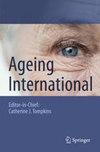Ethical Issues and Value Conflicts Faced by Japanese Care Workers in Geriatric Care: A Qualitative Study
Abstract
Involvement of Care workers in geriatric care is essential; few studies have identified the ethical issues faced by Care workers compared to medical professionals. This study aimed to clarify the ethical issues faced by Care workers engaged in geriatric care in Japan, the value conflicts among other professionals and their causes, and to obtain suggestions on how to address ethical issues. A qualitative study was conducted through semi-structured interviews using a descriptive approach. Forty-eight Care workers (18 men and 30 women) worked in geriatric care facilities etc. Narrative research methods and thematic analyses were used to analyze the data. Ethical issues related to the principle of respect for autonomy; beneficence, and non-maleficence; and justice were identified. Characteristically, ethical issues arose in daily life and were related to the “routinization” and “regularity”. Value conflict among other professionals was characterized by the conflict between the Care workers’ emphasis on the independence and quality of life of older people and the medical professionals’ emphasis on prolonging life and treatment. The reason behind this conflict was that care workers ware positioned at the lowest level of all care providers. The results suggest that focusing on “everyday ethics” in care settings can clarify the causes of ethical issues and provide insights for addressing them.

 求助内容:
求助内容: 应助结果提醒方式:
应助结果提醒方式:


